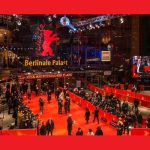Panahi’s latest film 'No Bears' premiered at the Venice Film Festival and will also screen at the Toronto International Film Festival.
Iranian directors Jafar Panahi and Mohammad Rasoulof, both of whom are presently detained by the Iranian government, sent a letter to the Venice International Film Festival, that was read by festival director Alberto Barbara at the start of a panel titled “Filmmakers Under Attack: Taking Stock, Taking Action.”
Both Panahi and Rasoulof were detained by the Iranian government last month. Rasoulof, who is the director of the Berlin Golden Bear winner There Is No Evil, was arrested alongside fellow filmmaker Mostafa Aleahmad for posting on social media and participating in protests over a building that had collapsed in the city of Abadan in May. Panahi, the director of Taxi and This Is Not a Film, was arrested later that week after he visited the prosecutor’s office in Tehran to inquire about the status of Rasoulof.
Panahi will serve a six-year jail sentence.
The directors in a joint statement press said that “The hope of creating again is a reason for existence.”
They added: “We are filmmakers. We are part of Iranian independent cinema. For us, to live is to create. We create works that are not commissioned. Therefore, those in power see us as criminals. Independent cinema reflects its own times. It draws inspiration from society. And cannot be indifferent to it.
“The history of Iranian cinema witnesses the constant and active presence of independent directors who have struggled to push back censorship and to ensure the survival of this art. While on this path, some were banned from making films, others were forced into exile or reduced to isolation. And yet, the hope of creating again is a reason for existence. No matter where, when, or under what circumstances, an independent filmmaker is either creating or thinking about creation. We are filmmakers, independent ones.”
There is No Evil producer Kaveh Farnam, speaking on the Venice panel, went over details of the arrests, calling the government’s latest crackdown “a big attack on independent Iranian cinema, on filmmakers and everything that is not 100% in the same direction and same ideology of the government.”
“A few weeks before, they had arrested some documentary-makers,” said Farnam. “This time, they released the news by themselves. It was pre-ready news. There was a message: ‘This is the start of direct, physical harassment and attacks on Iranian independent cinema.’ These events in the last two months prove that it’s not just Mohammad Rasoulof’s arrest. It was an attack on Iranian cinema.”
He thanked the international community for “making noise” in support of Iranian filmmakers but warned the government crackdown “isn’t finished yet.”
In addition to the situation in Iran, the panel discussed the persecution of filmmakers in several countries, including Turkey, Egypt and Myanmar. Turkish producer Sinem Sakaoglu discussed the case of producer and journalist Çiğdem Mater, who was sentenced to 18 years in prison, together with six co-defendants. The primary accusation against her is that she was trying to raise financing for a documentary project about the Gezi Park movement that was never actually made.














































































